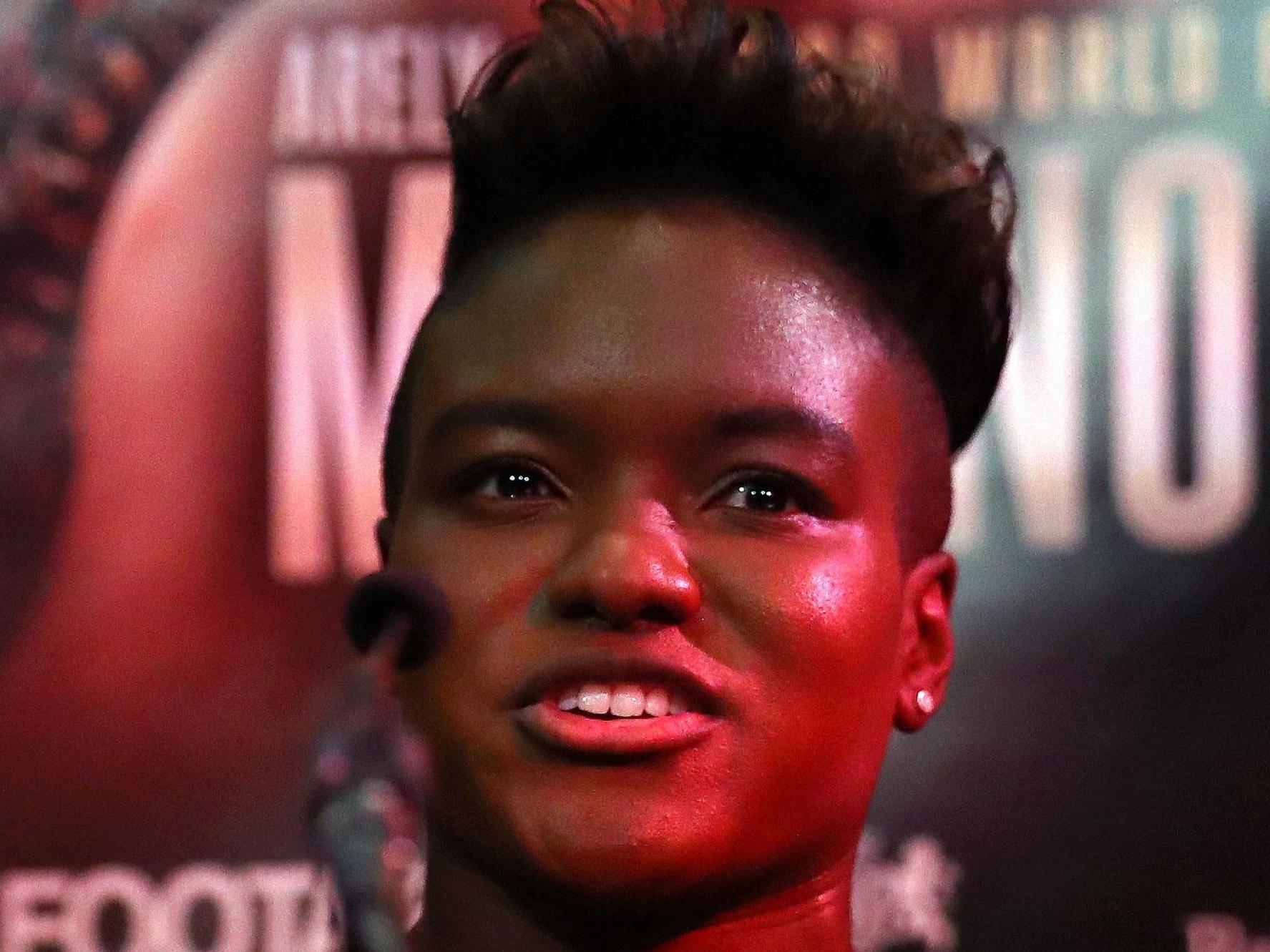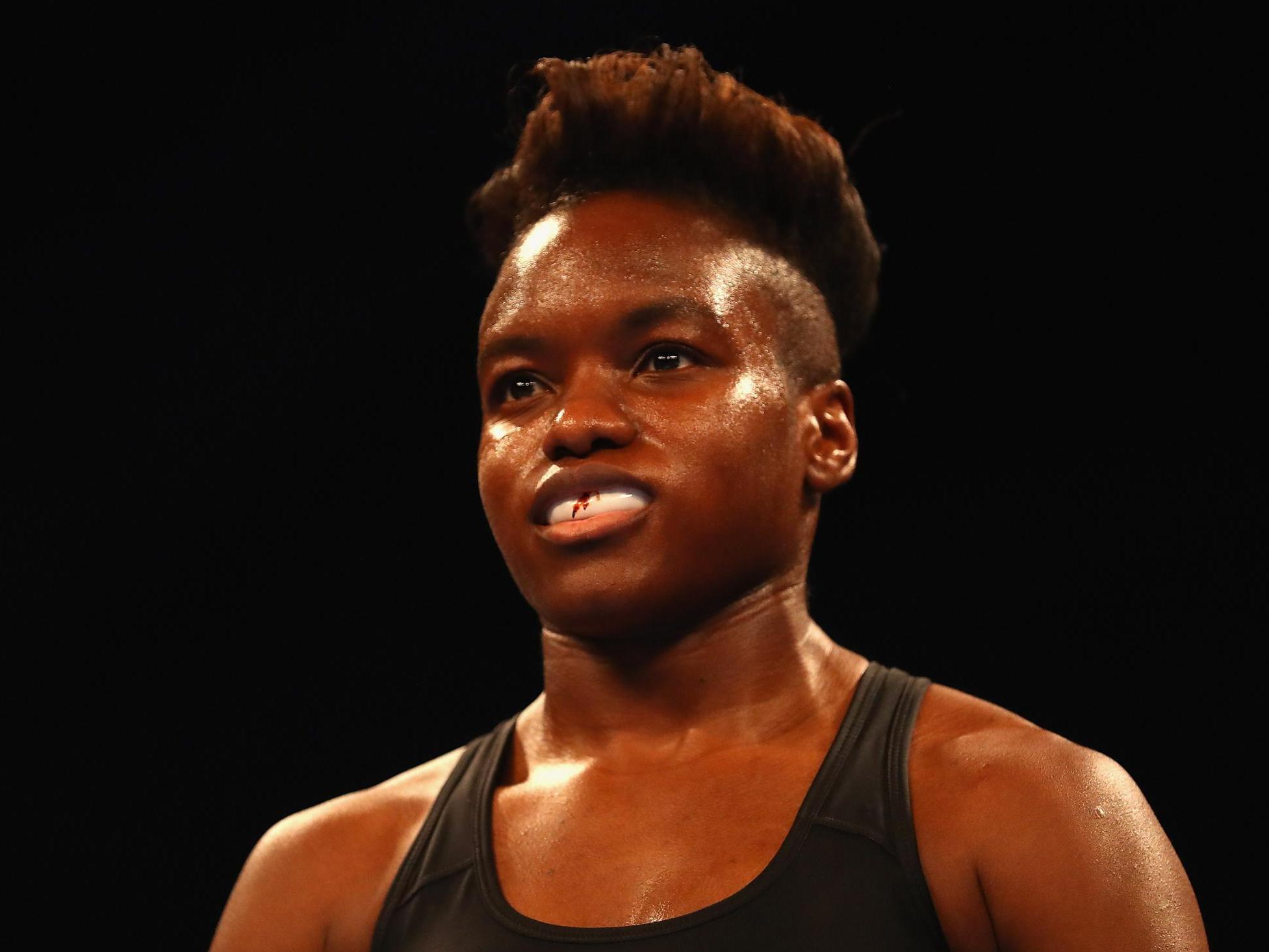Pioneer Nicola Adams continues fight to awaken women’s boxing
The former world amateur champion and Olympic gold medallist takes on Maria Salinas at the Royal Albert Hall on Friday

Your support helps us to tell the story
This election is still a dead heat, according to most polls. In a fight with such wafer-thin margins, we need reporters on the ground talking to the people Trump and Harris are courting. Your support allows us to keep sending journalists to the story.
The Independent is trusted by 27 million Americans from across the entire political spectrum every month. Unlike many other quality news outlets, we choose not to lock you out of our reporting and analysis with paywalls. But quality journalism must still be paid for.
Help us keep bring these critical stories to light. Your support makes all the difference.
Nicola Adams is under pressure on Friday night at the Royal Albert Hall on both sides of the ancient ropes as she fights for credibility and to test the real popularity of women’s boxing.
Adams is a pioneer, make no mistake, and was part of a group of women paraded like prancing cows at auction in front of male boxing selectors in 2001. The job description that afternoon at Crystal Palace, once the home of British amateur boxing, was simple: Was it worth sending any of the British women to the first Women’s World amateur championships? No, was the simple answer.
In 2016 Adams did win the World amateur title and in 2012 she became the first woman to win an Olympic gold medal, a second followed at the Rio Olympics, then she was a celebrity, then she turned professional, last October she won an ‘interim’ version of a world title in just her fifth fight and on Friday she has a real fight when she defends her title against Mexico’s Maria Salinas. As I said, she is under pressure to win, to win well and then to get back in the ring and start fighting the ten or more leading women at her weight.
The professional rankings reveal the unpleasant truth about women’s boxing and the lack of depth ten years after they were given the right to fight at the Olympics. It is also now 18 years since the first women’s world amateur championships and the hopeful thinking has always been that quality will follow depth, and that the professional business would by now be thriving. It is not, it is that simple.
In every single top ten of the weight divisions in the professional business – a total of 17 – there are novices, raw novices, beginners, which is something I thought would have changed by now. In 2002 I went to Turkey to cover the 2nd Women’s World amateur championships and I was optimistic that the sport would grow, impressed with the variety of styles, the different countries making an early impact. In Antalya that year the North Koreans boxed like pros from the Fifties, the Indians were brilliant, the Turkish and French and Italians were a match for the Russians. It was quality, I left that odd city confident of a real revolution. Now, a few weeks before the 11th edition, a year from the third Olympics with women boxing and with a British woman defending a world title at the Royal Albert Hall on Friday, I’m not so sure.
Where is the rivalry, where is the fight we want to see and who is calling for it? There are some, make no mistake, but they are all too busy bashing up part-timers from Bucharest. That saddens me.
In 1998 Jane Couch was granted the first professional female boxing licence by the British Boxing Board of Control after a stupidly long series of legal battles. Couch, whose book is out, took on the Board and won the right to fight. She is the true pioneer, a scrapper from a different era, poorly paid, neglected, abused in many ways and always overlooked. Couch’s victory over the Board 21 years ago, which was celebrated with the type of diabolical mismatch that has never quite left the women’s side of the game, was meant to be the catalyst. It was not and ten years after her victory there were just a couple of licenced British female professional boxers. The women’s game was nearly dead and then the Olympic lifeline was thrown its way.
The Olympic rush in 2012 was finally meant to change the game, testimony mounted from mums and dads and little girls rushing to gyms and participation increased at amateur level. There might be record numbers of girls and women walking through the doors at boxing gyms up and down the land, but so far the numbers have not altered the landscape.

Adams is a big name, but not yet a big boxing attraction in the real world of rivalries, competitive fights, great champions and the promise of proper fights. The men’s game offers enough facile matches, but the depth means there are still real fights even if some of the best boxers avoid each other.
On Saturday night in Manchester I was at a small-hall show and four of the five fights on the bill were genuine 50-50 matches between, mostly, unbeaten novices; I just can’t imagine how long it will be before I will be able sit down and watch a night of British women’s boxing with the same statistics. In 1998 I might have offered a guess, but not now.
So, as I said, Nicola Adams, the double Olympic champion, one of the best amateur boxers in British history – male or female – is under pressure on Friday night. Salinas has lost seven of her 31 fights, has met higher-ranked women than Adams and knows that winning the title can be instantly turned into cash on the thriving Mexican women’s circuit. It will be a good fight and hopefully it will raise the profile of the professional side of the sport in Britain.
Join our commenting forum
Join thought-provoking conversations, follow other Independent readers and see their replies
Comments